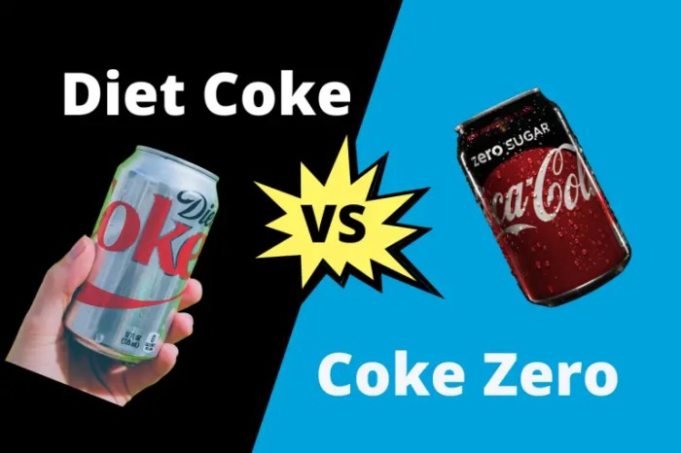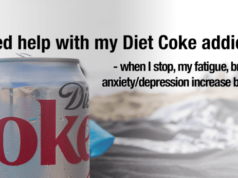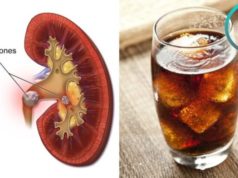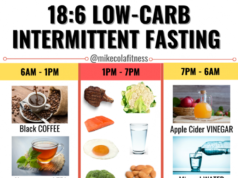How Does Diet Coke Have No Calories? This question has intrigued many, sparking curiosity about the science behind this popular beverage. Diet Coke, despite its sweet taste, manages to be calorie-free, a feat achieved through the use of artificial sweeteners. This article delves into the ingredients, chemistry, and impact of these sweeteners, exploring how they contribute to Diet Coke’s unique characteristics.
We’ll examine the chemical makeup of artificial sweeteners, their interaction with taste receptors, and their potential effects on metabolism. Additionally, we’ll discuss the role of carbonation in enhancing the taste and satiety of Diet Coke. Finally, we’ll explore the marketing strategies employed by Coca-Cola and the perception of Diet Coke among consumers.
Diet Coke Ingredients
Diet Coke, like most carbonated beverages, is a blend of several ingredients. However, its zero-calorie status is achieved through the use of artificial sweeteners instead of sugar.
Artificial Sweeteners in Diet Coke
Artificial sweeteners are the key to Diet Coke’s calorie-free nature. They provide sweetness without the calories associated with sugar. Diet Coke uses a combination of two artificial sweeteners: aspartame and acesulfame potassium.
- Aspartame is a widely used artificial sweetener that is about 180 times sweeter than sugar. It is a combination of two amino acids: aspartic acid and phenylalanine. Aspartame is broken down in the body into these amino acids, which are then used as building blocks for proteins.
- Acesulfame potassium is another artificial sweetener that is about 200 times sweeter than sugar. It is not metabolized by the body and is excreted unchanged in urine.
Calorie Content Comparison
While both artificial sweeteners contribute to Diet Coke’s sweetness, they contain significantly fewer calories than sugar. Here’s a comparison:
| Ingredient | Sweetness (relative to sugar) | Calories per gram |
|---|---|---|
| Sugar | 1 | 4 |
| Aspartame | 180 | 4 |
| Acesulfame potassium | 200 | 0 |
It is important to note that the calorie content of these sweeteners is negligible compared to sugar. This is why Diet Coke can be enjoyed without adding significant calories to your diet.
Calorie-Free Sweeteners
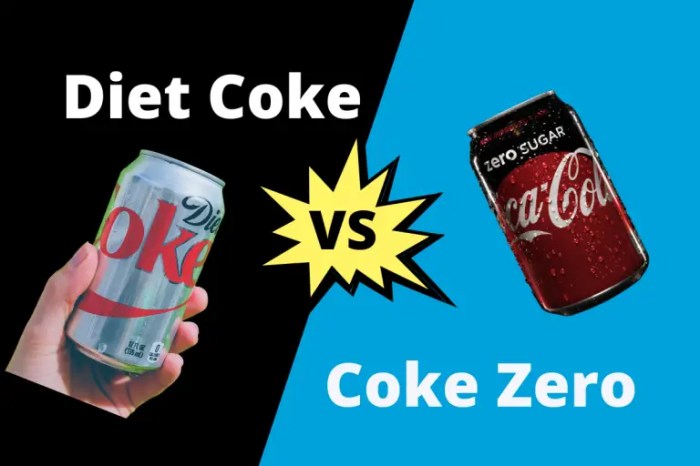
Diet Coke’s lack of calories is attributed to the use of artificial sweeteners, which provide sweetness without contributing significant calories. These sweeteners, like aspartame and sucralose, are designed to mimic the taste of sugar while being much lower in calories.
Aspartame and Sucralose Properties
Aspartame and sucralose are the most common artificial sweeteners used in diet beverages. Aspartame is a dipeptide composed of aspartic acid and phenylalanine, while sucralose is a chlorinated sugar derivative. Aspartame is about 180 times sweeter than sugar, while sucralose is about 600 times sweeter. This means that a very small amount of these sweeteners can provide the same level of sweetness as a larger amount of sugar.
Interaction with Taste Receptors
Aspartame and sucralose interact with the taste receptors on the tongue in a similar way to sugar. When these sweeteners are dissolved in saliva, they bind to the sweet taste receptors, triggering a signal that is transmitted to the brain, which interprets the signal as sweetness.
Sweetness Intensity Comparison
The sweetness intensity of these artificial sweeteners is significantly higher than that of sugar. For example, a single packet of aspartame, which contains approximately 4 mg, is equivalent in sweetness to about 1 teaspoon of sugar (4 grams). Sucralose is even sweeter, with a single packet (1.6 mg) providing the sweetness of about 2 teaspoons of sugar (8 grams). This high sweetness intensity allows for a significant reduction in the amount of sweetener needed to achieve the desired sweetness level, resulting in a product with very low calorie content.
Impact on Metabolism
Artificial sweeteners, the magic ingredients that make Diet Coke calorie-free, have sparked debate about their potential impact on metabolism. While they don’t contribute calories directly, their effects on our bodies are not entirely clear-cut. Research has explored how these sweeteners might influence our metabolic processes, raising concerns about potential long-term health implications.
Artificial Sweeteners and Metabolic Changes
The potential effects of artificial sweeteners on metabolism are a subject of ongoing research. Some studies suggest that artificial sweeteners may disrupt the gut microbiome, the trillions of bacteria residing in our digestive system. This disruption could potentially alter the way our bodies process food and regulate blood sugar levels. For instance, a study published in the journal Nature in 2014 found that artificial sweeteners, including sucralose, altered the gut microbiome of mice and increased their risk of developing glucose intolerance.
Potential Long-Term Health Implications
While the research is still evolving, some studies have linked the regular consumption of artificial sweeteners to potential long-term health implications. A study published in the journal PLOS Medicine in 2016 found that people who consumed artificially sweetened beverages regularly had a higher risk of developing metabolic syndrome, a cluster of conditions that increase the risk of heart disease, stroke, and type 2 diabetes. However, it’s important to note that these studies are observational and do not prove that artificial sweeteners cause these conditions. More research is needed to establish a definitive link.
Metabolic Responses to Sugar and Artificial Sweeteners
When we consume sugar, our bodies release insulin, a hormone that helps regulate blood sugar levels. Insulin signals our cells to take up glucose from the bloodstream, providing energy. Artificial sweeteners, on the other hand, do not trigger the same insulin response as sugar. This difference in metabolic response could potentially contribute to the observed effects of artificial sweeteners on the gut microbiome and overall metabolic health.
The Role of Carbonation: How Does Diet Coke Have No Calories
Carbonation is a key characteristic of Diet Coke, adding a unique fizz and a refreshing sensation that many people find enjoyable. It plays a significant role in the taste and overall experience of the beverage.
Impact on Taste and Enjoyment
The bubbles in carbonated drinks, like Diet Coke, contribute to a more complex and enjoyable taste experience. The carbonation creates a tingling sensation on the tongue, which can enhance the sweetness of the artificial sweeteners and mask any potential metallic aftertaste. This sensation also helps to create a refreshing and stimulating effect, making Diet Coke a popular choice for many consumers.
Potential Impact on Satiety and Appetite
While carbonation is often associated with feelings of fullness, research suggests that its impact on satiety and appetite is complex and may vary depending on individual factors. Some studies have shown that carbonated beverages can lead to a feeling of fullness, possibly due to the expansion of the stomach caused by the gas bubbles. However, other research indicates that carbonation may actually stimulate appetite by increasing gastric acid production.
Comparison with Other Beverages
Carbonation is a common feature in many beverages, including water, soda, and beer. However, the impact of carbonation on the body can vary depending on the specific beverage and its other ingredients. For instance, carbonated water is generally considered a healthy choice, while sugary carbonated drinks can contribute to weight gain and other health problems. It’s important to consider the overall nutritional content of any beverage, including the amount of sugar, calories, and other ingredients, when making informed choices.
Marketing and Perception
The success of Diet Coke can be attributed to Coca-Cola’s strategic marketing efforts and the public perception of the product. Coca-Cola has successfully positioned Diet Coke as a desirable alternative to regular Coke, appealing to a wide range of consumers seeking a lower-calorie option without sacrificing taste.
Target Audience and Appeal
Diet Coke targets a diverse audience, including health-conscious individuals, weight-watchers, and those who simply enjoy the taste of Coke without the added calories. The appeal of Diet Coke lies in its ability to offer a guilt-free indulgence, allowing consumers to enjoy a familiar and beloved taste without compromising their dietary goals.
- Health-conscious individuals: Diet Coke caters to those who prioritize health and well-being, seeking a low-calorie alternative to regular soda.
- Weight-watchers: Diet Coke appeals to individuals striving to maintain or lose weight, offering a calorie-free option that allows them to enjoy a sweet treat without sabotaging their efforts.
- Fans of Coca-Cola: Diet Coke provides a familiar taste for Coca-Cola enthusiasts who prefer a lower-calorie option, allowing them to enjoy their favorite beverage without the added sugar.
Alternative Diet Beverages
Diet Coke is not the only option for those seeking a sugar-free, calorie-free beverage. A wide array of alternatives exists, each with its own unique blend of ingredients, potential benefits, and drawbacks. This section explores some popular alternatives, comparing them to Diet Coke and examining their pros and cons.
Comparison of Diet Beverages, How does diet coke have no calories
This section will compare the ingredients and calorie content of various diet beverages to Diet Coke.
- Diet Pepsi: Similar to Diet Coke, Diet Pepsi is a sugar-free cola sweetened with artificial sweeteners like aspartame and acesulfame potassium. It has zero calories and contains caffeine.
- Coca-Cola Zero Sugar: Another sugar-free cola option, Coca-Cola Zero Sugar aims to replicate the taste of regular Coke without the sugar. It also contains artificial sweeteners, including aspartame and acesulfame potassium, and has zero calories.
- Sprite Zero: A sugar-free version of the popular lemon-lime soda, Sprite Zero uses sucralose and acesulfame potassium for sweetness. It contains no sugar and has zero calories.
- Mountain Dew Zero Sugar: A sugar-free version of the popular citrus-flavored soda, Mountain Dew Zero Sugar uses sucralose and acesulfame potassium for sweetness. It contains no sugar and has zero calories.
- Diet Dr Pepper: A sugar-free version of the popular cola beverage, Diet Dr Pepper uses aspartame, acesulfame potassium, and sucralose for sweetness. It contains no sugar and has zero calories.
- 7 Up Zero Sugar: A sugar-free version of the popular lemon-lime soda, 7 Up Zero Sugar uses sucralose and acesulfame potassium for sweetness. It contains no sugar and has zero calories.
Pros and Cons of Diet Beverages
This section discusses the potential benefits and drawbacks of consuming diet beverages.
- Pros:
- Lower calorie intake: Diet beverages offer a way to enjoy the taste of soda without consuming added sugar and calories, which can be beneficial for weight management.
- Reduced risk of dental problems: Unlike sugar-sweetened beverages, diet beverages do not contribute to tooth decay.
- May help with blood sugar control: For individuals with diabetes, diet beverages can be a suitable option as they do not spike blood sugar levels.
- Cons:
- Artificial sweeteners: Some people experience adverse effects from artificial sweeteners, such as headaches, digestive issues, or even cravings for sugary foods.
- Potential impact on gut health: Studies have suggested that artificial sweeteners may alter gut bacteria composition, potentially affecting overall health.
- Dehydration: Carbonated beverages, including diet options, can lead to dehydration if not consumed in moderation and coupled with sufficient water intake.
Last Point
Understanding how Diet Coke achieves its calorie-free status sheds light on the fascinating world of artificial sweeteners and their impact on our bodies. While Diet Coke offers a sugar-free option for those seeking to reduce their calorie intake, it’s essential to be mindful of potential long-term health implications associated with regular consumption of artificial sweeteners. By exploring the science behind Diet Coke, we gain a deeper appreciation for the complexities of food science and the choices we make in our daily lives.
Frequently Asked Questions
Is Diet Coke actually good for you?
While Diet Coke is calorie-free, it’s not necessarily considered healthy. Artificial sweeteners can have potential health implications, and some studies suggest they may disrupt gut bacteria and potentially contribute to metabolic issues. It’s important to consume diet sodas in moderation and consider healthier alternatives like water or unsweetened tea.
Are there any other diet sodas besides Diet Coke?
Yes, there are many other diet sodas available, including Diet Pepsi, Sprite Zero, and various flavored diet sodas. These options often utilize different artificial sweeteners, so it’s worth comparing ingredients to see what suits your preferences.
Does Diet Coke affect my teeth?
Diet Coke, like regular soda, can contribute to tooth enamel erosion. The acidity of the beverage can weaken enamel, making teeth more susceptible to cavities. It’s recommended to brush your teeth after consuming any soda, including diet sodas.
Diet Coke is calorie-free because it uses artificial sweeteners instead of sugar. These sweeteners are much sweeter than sugar, so only a tiny amount is needed to create the same level of sweetness. While we’re on the topic of sweet things, you might be wondering how long those frozen desserts you’ve got in the freezer will last – check out this handy guide on how long do foods last in the freezer.
Back to Diet Coke, the artificial sweeteners don’t provide any calories, which is why it’s a popular choice for people looking to cut down on their sugar intake.
Diet Coke achieves its zero-calorie status through the use of artificial sweeteners, which are much sweeter than sugar but provide no calories. This begs the question: how do we know if a food is truly good for our furry friends?
Taking a look at the Science Diet brand for cats, is science diet good for cats , can provide some insight into how we determine nutritional value for pets. Ultimately, just like with humans, a healthy diet for cats is one that balances taste and nutritional needs.
And, just like Diet Coke, sometimes a bit of artificial sweetness can be the key to a delicious, guilt-free treat.
Diet Coke manages to be calorie-free by using artificial sweeteners instead of sugar. These sweeteners, like aspartame, provide sweetness without the calories. But while it’s sugar-free, you might wonder, is diet coke caffeine free ? It’s not, as it still contains caffeine like regular Coke.
So, even though you’re avoiding the sugar, you’re still getting that caffeine kick.















